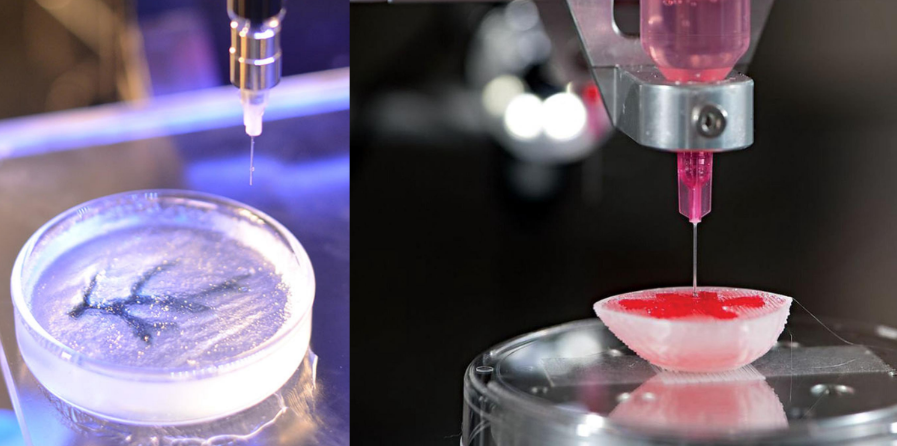Agriculture
Shaping the Future of the Agricultural Sector with Biotechnology
Climate Changes and Other Problems in the Agricultural Sector:
The rising global population in recent years has led to an ever-increasing demand for fresh and premium food. To cater to the demand, farmers are trying their best to produce palatable, high-quality crops with high nutritional content and long shelf life, devoid of pests and diseases.
However, the overall agriculture sector is facing tremendous challenges in terms of climate change limited arable land, and poor-quality crops due to various diseases, pests, abiotic stress, and soil-related problems.
The constantly changing overall climatic conditions have drastically affected the crops, land, and overall farming practices. Changing precipitation patterns and increasing evaporation have also resulted in water scarcity across many regions, resulting in crop failure and reduced yields.
Moreover, the altered growing seasons and warmer temperatures have expanded the pest ranges and increased disease incidence. This has overall impacted the crop yield and quality and small-scale and limited-resource farmers are facing challenges in adopting new technologies and practices to adapt to the changing farm scenarios.
Efforts to Minimize the Challenges:
As way out companies are heavily investing in R&D activities to develop innovative and organic solutions. One of the latest and highly effective solutions is the introduction of biotechnology tools and technologies in agriculture. These tools and techniques are steadily improving the current picture.
Agricultural biotechnology, also known as agritech plays a key role in modern agriculture by using scientific tools and technologies to modify living organisms, animals, plants, and even microorganisms to improve crop resilience, enhance crop productivity, and address various challenges in food products.
Agribiotech uses various tools and techniques that assist in crop improvement, pest and disease resistance, nutritional enhancement, faster breeding, and climate change adaptations. In addition, it helps in reducing chemical inputs and increasing overall profitability.
Role of Biotechnology in Crop Yield and Livestock Management:
Advanced tools and technologies can help farm owners produce a greater number of high-quality crops and products that too at a cheaper price and make managing farms easier. For instance, some crops can be genetically engineered to enhance their tolerance towards specific herbicides. This can help in weed control and enhance production.
Farmers are steadily understanding the importance of biotechnology tools and technologies are seen to deploy these in their farms. By using advanced techniques like marker-assisted selection and genetic engineering, it is possible to create crops resistant to pests, diseases, and harsh environments like salt stress and drought. This can in turn enhance the crop yield and resistance.
Another important and widely-talked technology is CRISPR-Cas9 which allows scientists to modify the DNA of organisms with enhanced accuracy. CRISPR is used in the agriculture sector to target and edit specific genes responsible for desired crop traits thereby offering improved yield, disease resistance, pest resistance, reduced allergens, better abiotic stress tolerance, and nutritional content. Other tools such as genomic tools, bioinformatics, biopharming, RNA interference, tissue culture, and cloning are also used in farming practices.
However, climatic conditions not only affect crop yield but also have a major impact on livestock health and productivity. Biotechnology offers a wide range of tools and techniques that can completely revolutionize livestock management. It is used for developing rapid and accurate diagnostic tests for livestock diseases and enhancing animal breeding with selective breeding, gene editing, artificial insemination, and embryo transfer.
Drawbacks of Agricultural Biotechnology:
Agricultural biotechnology as a whole involves lots of complex research, regulatory compliance, and intellectual property rights for the development of advanced tools and technologies. Thus, these tools and equipment can be costly, limiting access to small-scale and resource-poor farmers. In addition, there is often a gap in public understanding of biotechnological processes that can lead to skepticism. As there is modification involved, chances of cross-pollination, co-existence, pest and pathogen adoption and impact on ecosystems are high.
Agricultural Biotechnology Market Scenario:
The global agricultural biotechnology market size was USD 110.06 billion in 2023 and is expected to register a rapid CAGR of 8.5% during the forecast period. Factors such as growing demand for high-quality food and fresh produce to cater to increasing global population, rapid advancements in genetic engineering, need for sustainable agriculture are expected to drive global market growth between 2024 and 2032.
Many leading companies are heavily investing in R&D activities to develop advanced tools and technologies to overcome current challenges and improve overall farming practices. They are also focused on collaborations and partnerships with other companies, institutions, and businesses to expand their product base. For instance, in January 2023, Bayer AG announced a collaboration with Oerth Bio to develop a generation of more sustainable crop production products. Another instance, was in March 2022 when BASF announced its plan to open an innovative platform AgroStart to develop new digital solutions for agriculture.
Follow us on LinkedIn - https://www.linkedin.com/company/xcellent-insights




